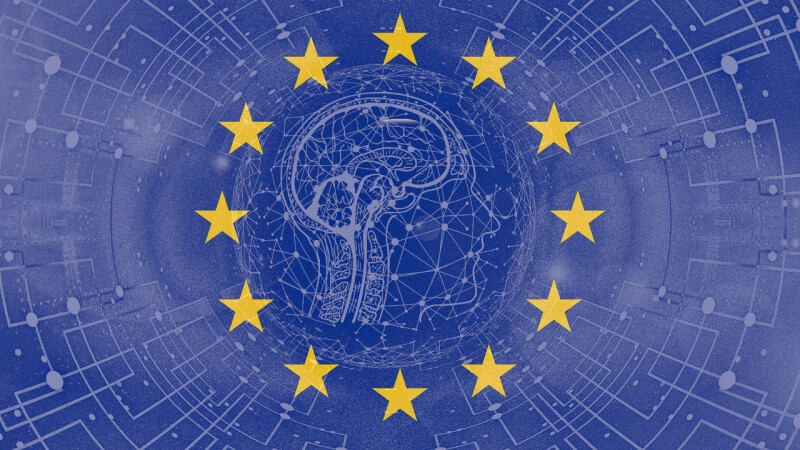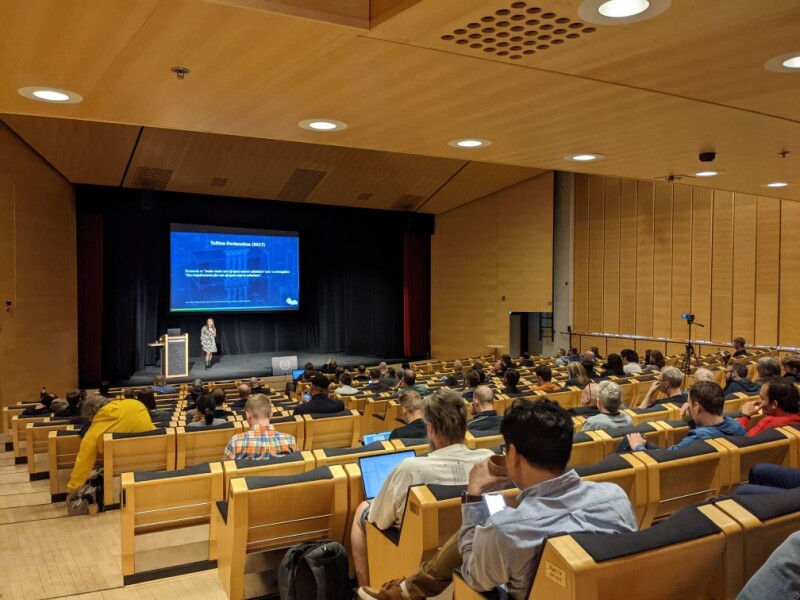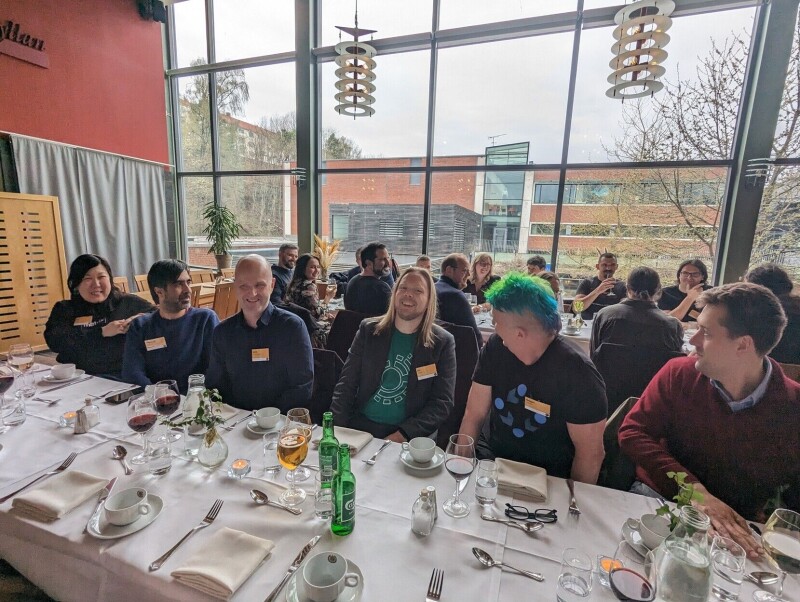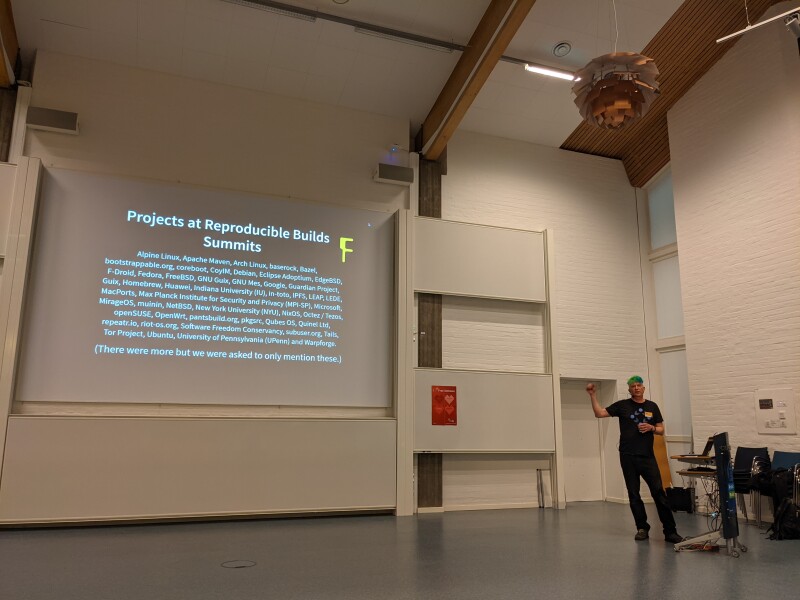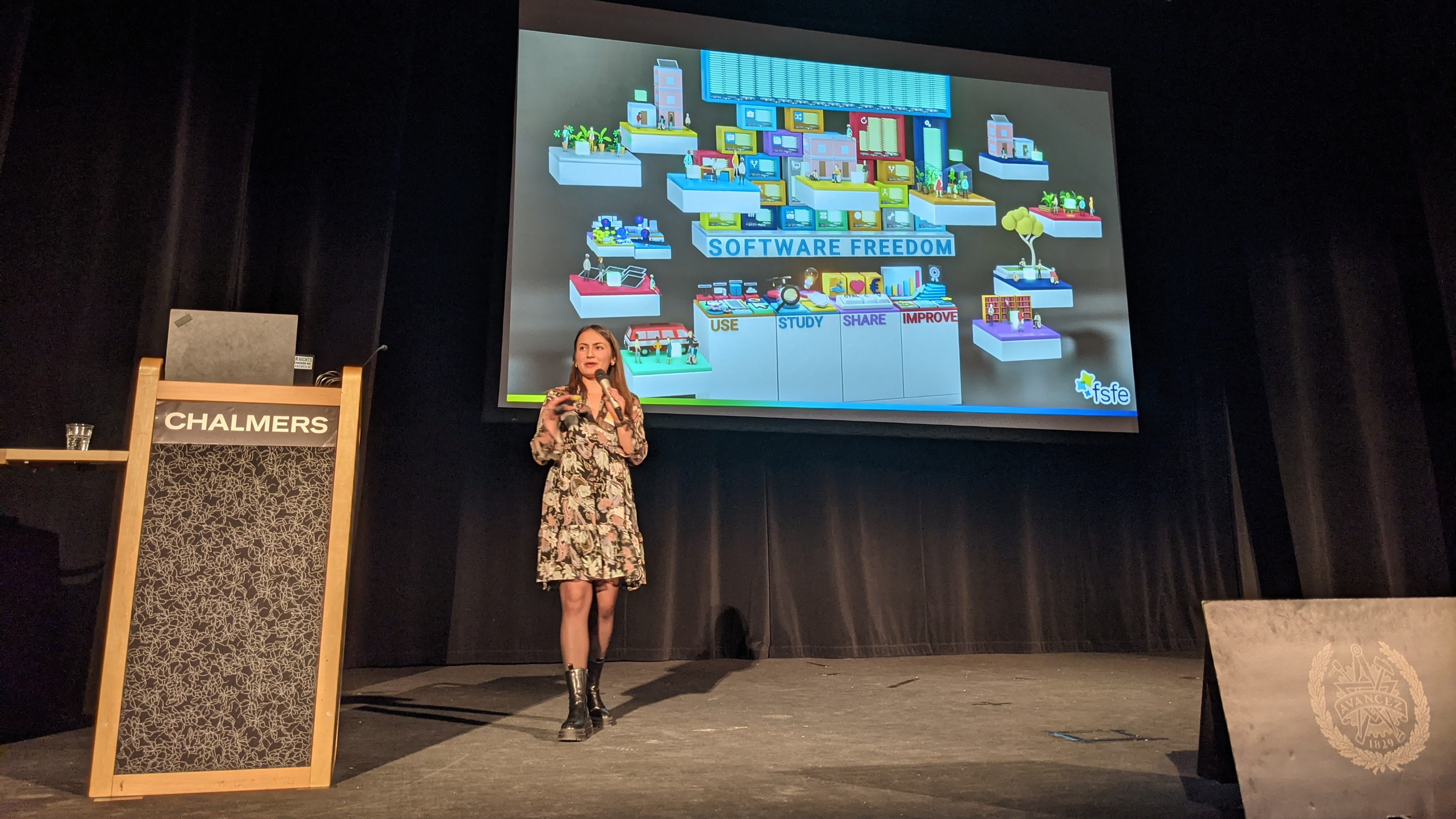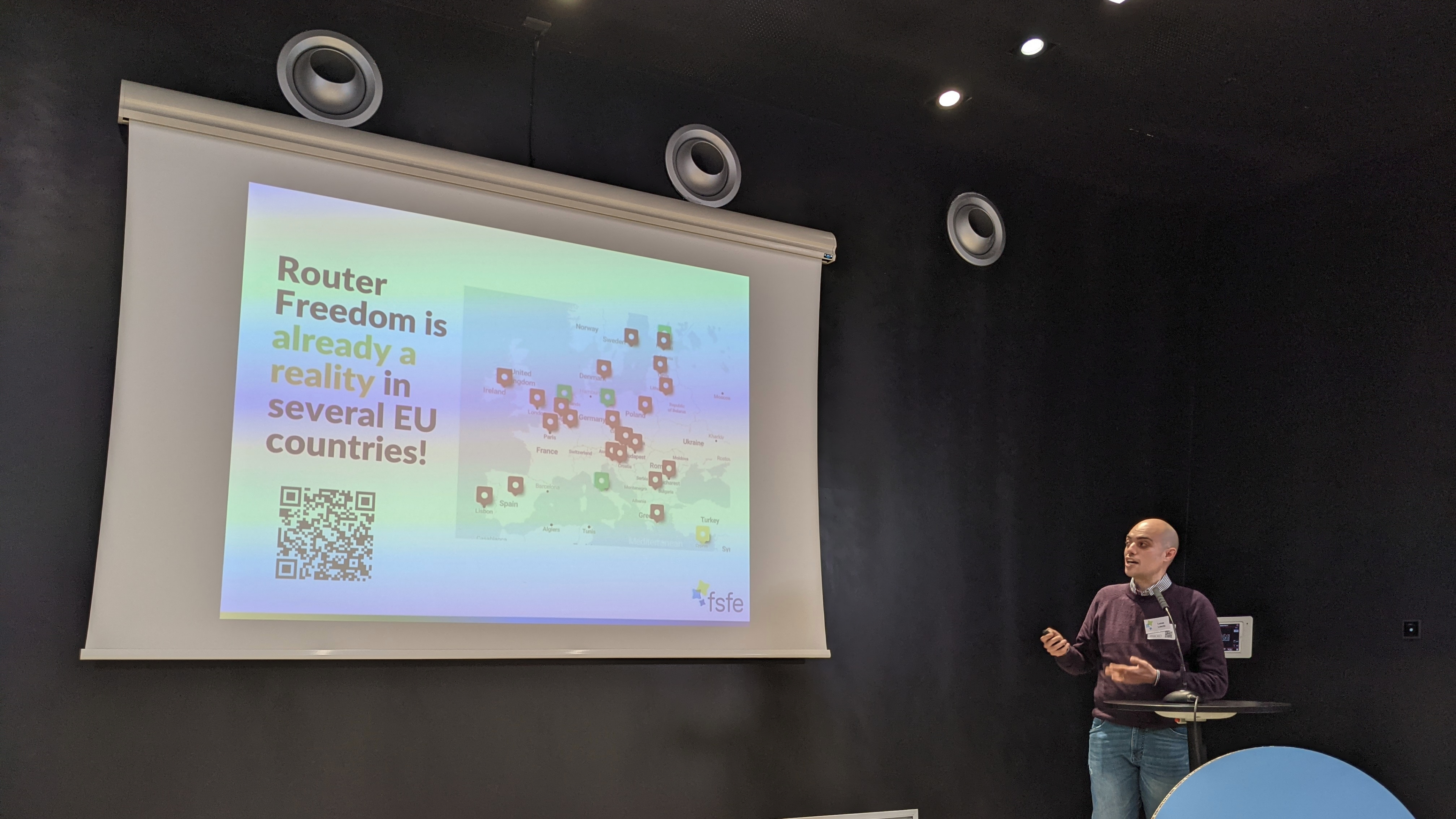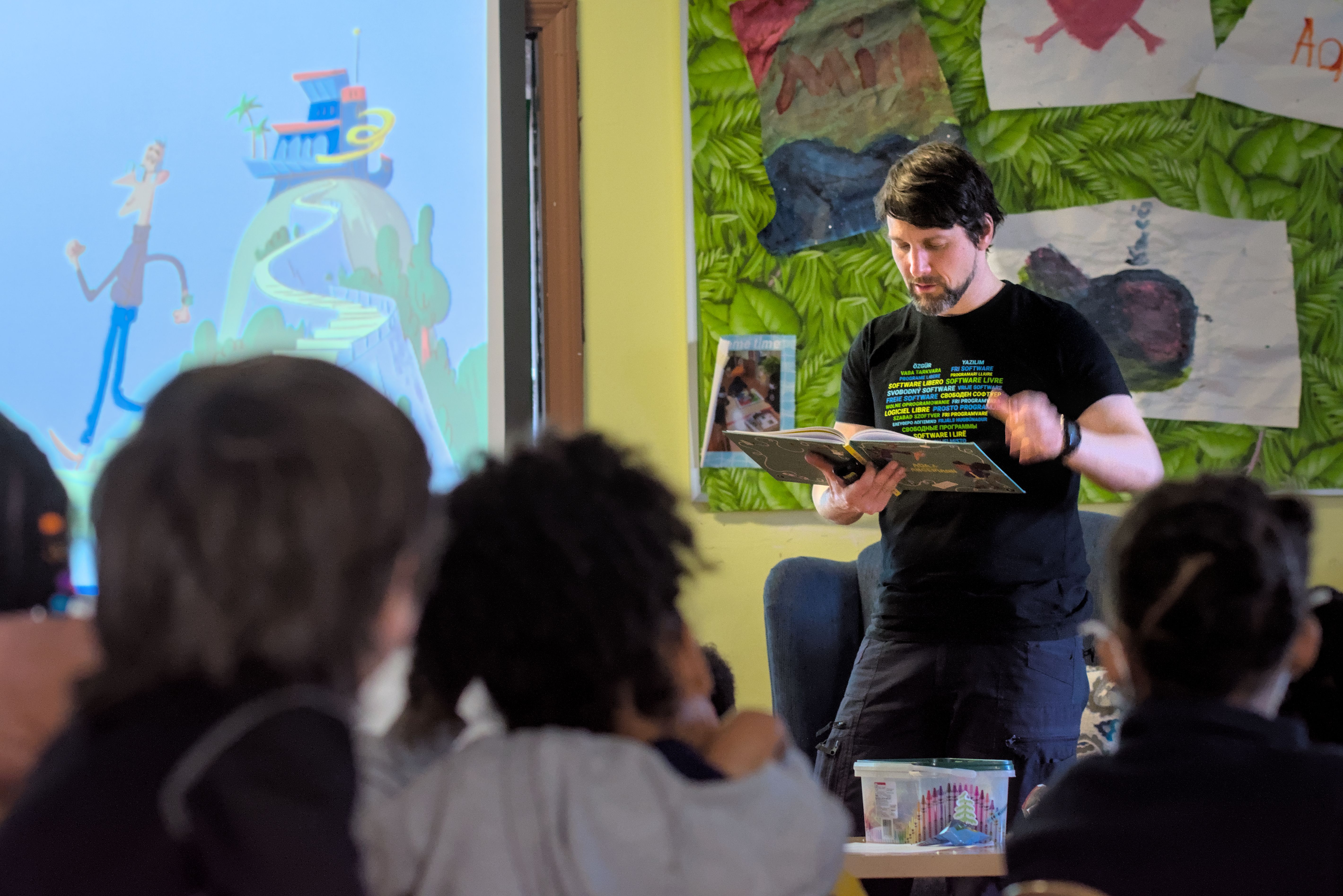Look back with us on Konrad's amazing 'Youth Hacking 4 Freedom' project
jeudi 11 mai 2023 à 01:00Look back with us on Konrad's amazing 'Youth Hacking 4 Freedom' project
Youth Hacking 4 Freedom inspires European youth to use their skills for change. Konrad's learning platform for the amateur radio service exam is one example. Let's break down his project and see how YH4F helped him bring his vision to life. Join us in the exciting world of YH4F!
The second edition of the "Youth Hacking 4 Freedom" contest is currently underway, with participants hard at work on their projects. To keep you motivated and showcase the amazing ideas being developed, we have been speaking to some of the first edition contestants over the past few months. One of them is Konrad, who developed a learning platform to help people study for the "Amateur Radio Service" exam, which is a requirement for using the "Amateur Radio Service". Let's hear from Konrad about his experience in the contest, his project, and the inspiration behind it! Did you know that he is also participating in this second edition?
Konrad has been programming for a while now and still enjoys it very much. In addition to programming, he also likes to build practical projects that make a real impact and help others.
FSFE: Hello Konrad. Thank you for your time.
FSFE: What was your first experience with programming, and how did you start learning to program?
Konrad: Back in 2017, I got my first laptop that was able to browse the internet. The creative possibilities seemed endless back then, so I started tinkering around with lots of different programs and tools. I used the pre-installed music software a lot and created short films of my village.
After a while, I discovered Minecraft, and a whole universe opened up to me. I was now able to create whatever I wanted, and secretly, I was learning the core concepts of programming by using command blocks in the game.
After some time, I realized that the platform was inaccessible for most people and started looking into web development. At the time, HTML, CSS, and JavaScript overwhelmed me, and it took a whole year until I became fluent in using HTML. My first programming project was a small weather station that I built with a Raspberry Pi, which saved the data to a MySQL database. At that point, I also got in touch with Linux for the first time while using the Raspberry Pi. The simplicity was completely new to me, and I was astounded by the flexibility the whole system offered.
FSFE: Can you remember your first contact with Free Software?
Konrad: Before I used the Raspberry Pi, I had no clue what Free Software meant or what positive aspects it offered. But as I delved further into the matter, I noticed that most of the tools I used and loved were Free Software. At that point, I also installed Linux as the main operating system on my first computer and started wondering how it all worked in the background. I discovered a whole new world of software and communities passionate about their beliefs.
FSFE: What led you to participate in the first edition of YH4F, and why did you decide to join the second edition as well?
Konrad: Since I had some experience in developing software and using versioning tools like Git, I took the opportunity to practice and improve my skills even further. During the first round, I gained a lot of insight into the background of the Free Software Foundation and learned why not every software that appears to be open actually is. I also learned a lot about decentralization and how to write good documentation. Lastly, I was interested in meeting other like-minded people, so I joined the Matrix channel and had a lot of fun discussing topics related to Free Software.
FSFE: What do you enjoy most about the contest?
Konrad: Honestly, I mostly enjoyed the company and talking to other people and getting to know their project, their beliefs and values when it comes to software development.
FSFE: Your project from the first round was connected to amateur radio services. Could you briefly explain where your interest for amateur radio services comes from and how it works?
Konrad: Amateur radio, also known as ham radio (which is not actually related to the food), is a strictly non-commercial radio service that is available throughout the world and supports international understanding. Usage of encryption or proprietary standards is heavily prohibited in amateur radio worldwide.
So you can imagine amateur radio as an Free Software radio service that is used for talking, exchanging information, or scientific experiments. I was always interested in the technical aspects of networks, and ham radio is a very practical hobby where you can build your own networks from scratch and experiment a lot.
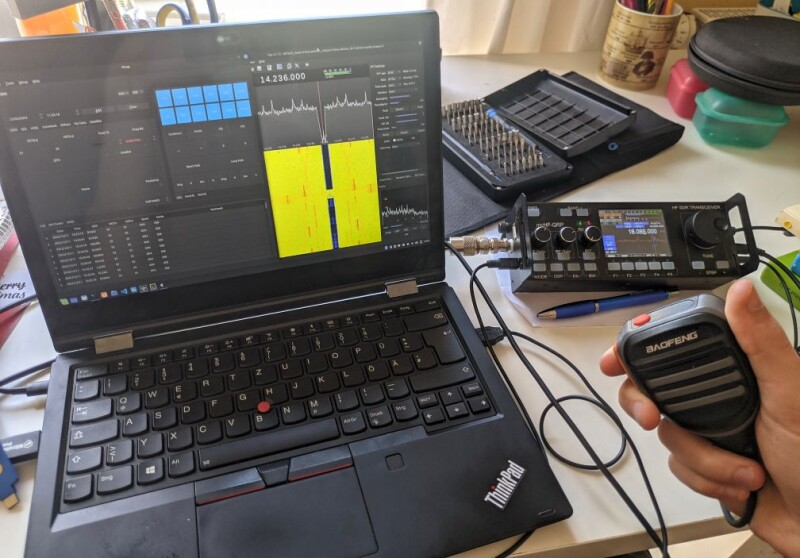 Konrad's amateur radio setup: The picture is licensed under CC-BY-SA and the license holder is Konrad.
Konrad's amateur radio setup: The picture is licensed under CC-BY-SA and the license holder is Konrad.
There are, for example, projects throughout Europe where a non-commercial alternative to the internet is being built up. So I see a deep connection between the things I liked when playing around with my computer and the things that are done in amateur radio. But I can only scratch the surface here; there is so much more to it than you might think at first. There is even a radio station on board the International Space Station, and if you are lucky, you might catch the astronauts in their free time and chat with them for the duration of the overpass.
FSFE: Are there any requirements for people to join a conversation via radio services?
Konrad: Radio, in general, is heavily regulated around the world because the frequency of a radio wave can only be used once by a person or company. As a result, amateur radio is in constant rivalry with big companies that would rather use the frequencies commercially, considering them as valuable resources.
Amateur Radio, however, sets itself apart by being open to anyone with a license that can be obtained in a month of learning. But even without a license, there are still many ways to participate. For example, you can build antennas and listen to amateur radio stations from all over the world using only a single wire. It's easier than it might seem at first.
FSFE: Could you explain a bit more about your project?
Konrad: My project from the first round was also related to amateur radio, as I was studying for the exam at that time. The exam is built up by multiple-choice questions here in Germany, which are available as a PDF download on the website of the federal agency.
I started looking for ways to study the questions but only found software developed for Windows or costly proprietary software. So, I searched for the question data that was used in those apps and found a modified version that was slightly more convenient to work with. I wanted to assist people who were in the same situation as me by developing a learning platform for the exam.
I chose Flutter as the development tool because it can be used on all major platforms such as Linux, Android, or iOS. Since this was my first project written in Flutter, I learned a lot on my way to the finished platform. I was most proud of the user progress tracking feature that helps users identify how much they still need to learn.
FSFE: What motivated you to free this kind of data?
Konrad: As I mentioned before, the apps I saw were either outdated, proprietary, or difficult to use. My project aimed to motivate more people to get into amateur radio by lowering the entry barrier. I believe this data should also be available in a machine-readable format, such as JSON or at least CSV. That's why I thought FSFE might be interested in my project since I saw their campaign "Public Money? Public Code!".
FSFE: Did you encounter any problems during the coding period?
Konrad: Especially the data processing was difficult at first because the dataset was huge and the conversions were often challenging. Additionally, implementing the database feature for progress tracking was also a challenge. Overall, getting used to Flutter and Dart as new tools was difficult but rewarding, and I had a lot of fun learning both.
FSFE: And last but not least, what is your current project for the second round of YH4F
Konrad: This year I am pretty busy, but nevertheless I am working on converting a weather probe that is launched by weather services to observe the atmosphere and can be recovered by anyone.
I already recovered two of them because one landed in the neighbouring village. Now, I am trying on flashing and building a new firmware for me to use the probe as a weather station. So back to the roots.
FSFE: Thank you, Konrad, for your time, and we wish you good luck in this year's competition.
The second edition of YH4F is currently in its coding period, offering teenagers between 14 and 18 the opportunity to challenge themselves, connect with like-minded peers, and compete for cash prizes. This contest, run by the Free Software Foundation Europe, aims to inspire young people by providing them with a fair and enjoyable platform to hack software projects and interact with fellow young developers from various parts of Europe.
You can find more information at the YH4F website.
